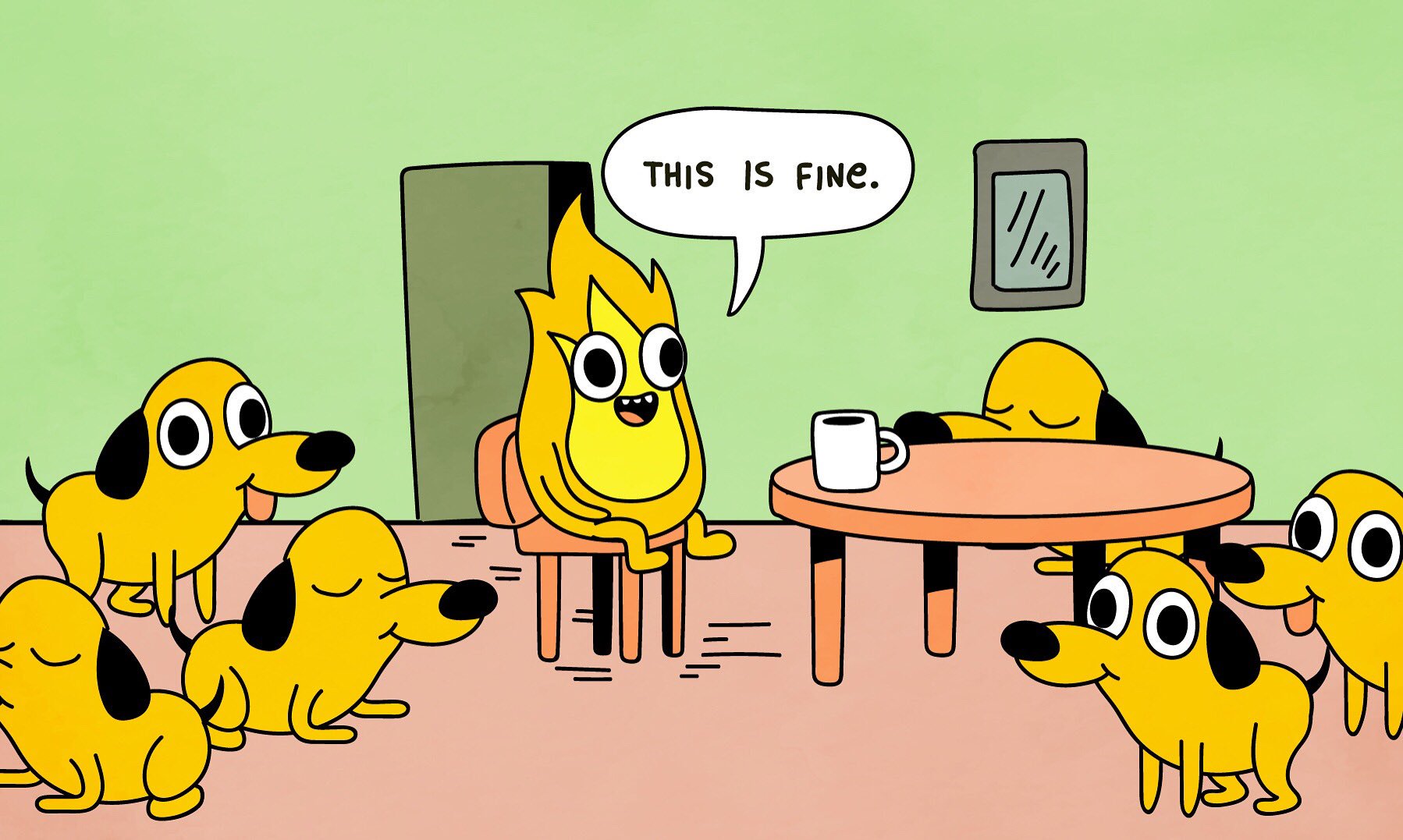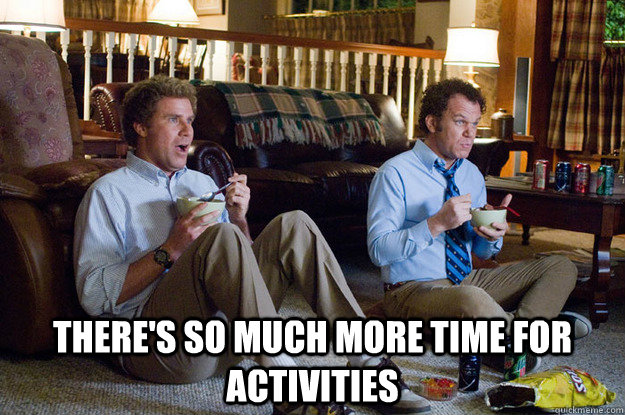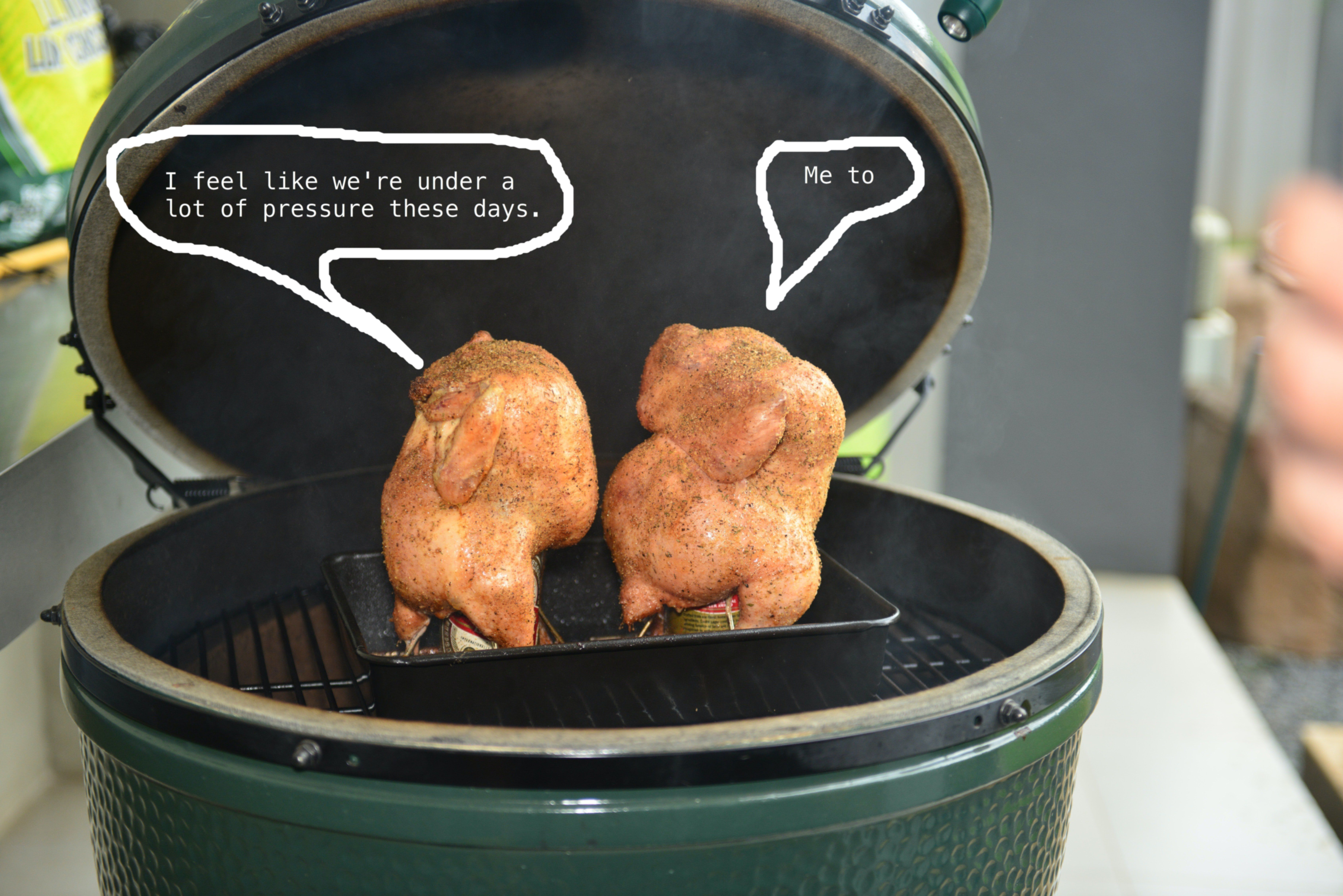One thing the Army is good at is teaching you how to function under immense pressure, for extended periods. Speaking briefly about my credentials in this area, I’ve spent just under five years in the Army, nine months of which were in Afghanistan as part of a NATO mission with the New Zealand Defence Force. As with everything, there are folk out there with more experience than me, who have done it harder, for longer. I still feel it’s worth sharing this experience as perhaps the way I do that resonates with you, as the way others share their experience resonates with others.
There are several things we need to understand about ourselves if we are to remain functional while under pressure. We need to understand what our baseline stress profile. We need to learn about how to work on our stress levels over time. We must deal with spikes.
I believe that Covid-19 is a long-lived global pandemic, that will shift the way the world works. Now, or over the next 12 months, our society will have to make changes to the way we live, together. If we can change, we may endure, after we endure, we might be able to start living again. We are not in a sprint right now. We’re in a marathon. Consider the pandemic an endurance sport.
With the recent announcement by the Government of Alert Level 4, it’s time to confront uncomfortable truths. Fortunately, doing so is the first step we can all take to adjust to this new reality. Confronting uncomfortable truths is the first step I’d like you to consider.
 Credit: Allex Villegas, Twitter
Credit: Allex Villegas, Twitter
Take stock of how you are, right now.
How are you feeling? Do you feel loose, calm or limber? Do you think you might evaporate into thin air any second, or perhaps you feel like everything around you is vibrating or spinning?
The very first step here is to figure out how you are responding both mentally and physically. Hopefully, you know what your body feels like when you’re feeling nervous, it might be trickier to figure out your mental state. Asking your mind to observe itself, is like trying to look rocks at the bottom of a pond without disturbing the surface.
If you’re not sure how you feel (or you feel busy but can’t quite narrow down why), you might find it useful to do a body scan. A body scan is a valuable mindfulness technique to begin to understand how you feel.
It’s important that during a body scan, you don’t judge yourself. Don’t beat yourself up at how you feel. The way you feel, is. The way you feel must exist free of any value judgement - our goal here isn’t to fix or solve anything. Our goal isn’t to make you feel better - yet. With a body scan, all we want to do is gain awareness of ourselves, in a way that we might not normally do.
There are several apps out there that can help you practice your body scan. I’ve had good results with both Calm and Headspace, and I recommend them both to you.
Often after a long day in Afghanistan, I would find myself exhausted despite having not done anything of note. My shoulders would feel like slabs of iron, and my back would feel brittle and inflexible. I didn’t know why. I slowly learned that the more time I spent trying to sense how individual parts of my body were feeling, the easier it was to find ways to accept how I felt. Allowing that I felt a certain way let me choose where to intervene, or where not to.
The effect this had, is that it took me from a place where I felt like things were happening to me that I couldn’t control, to a place where I could step back and examine what was happening, make sense of it and respond. I was able to reassert some control over my situation.
Regaining control in this way led me to a core concept that you may have heard before: You cannot always control your environment, but you can control how you respond.
Confront uncomfortable truths
Have you heard the phrase “Disagree and commit” before? Spoken initially by Scott McNealy of Sun Microsystems, Jeff Bezos popularised them as a core leadership principle of Amazon. You may have used these words before when talking about a decision at work. In this way, “Disagree and commit” can shape your reality at work.
They can also shape your reality outside of work.
The Stockdale Paradox states:
Retain absolute faith that you can and will prevail in the end, regardless of the difficulties AND at the same time confront the most brutal facts or your current reality, whatever they might be.
This concept was vital for me getting through the pressures of being deployed to a war zone. It can help again by giving us a life raft to hold on to during a global pandemic the likes of which we haven’t seen for a hundred years and more.
Practice with me now. Take these facts, understand them, and reflect on them. Take another body scan and reflect on how they make you feel. Be kind to yourself and know that this is a normal reaction.
This pandemic is global and will be with us for longer than our self-isolation. For the next year if not longer, you, I, our loved ones and people we’ve never met equally will be at risk of contracting, and being killed by this virus. Our careers, our families and our ways of life are at risk. It’s going to get worse before it gets better.
My two-year-old son is currently immunocompromised, and so I feel this risk very acutely. With practice, we can accept these facts and let them flow over us like water, and none of us is helpless.
I believe, and the goal here is for you also to believe in the core of your being, that we will get through this. We will endure. Of that, there is no question - as we have done before, so to will we now. We must have unwavering faith that we will prevail in the end. Having accepted entirely, the brutal facts of our reality, and armed with the conviction that we will prevail, positive change can begin.
Understand what you can control
Confronting the brutal truths of your new normal is the first step in reasserting control over your life. Regardless of what your chosen list is, make sure you have one. If your limbs feel like lead getting out of bed in the morning right now, it can feel gratuitous - why focus more on the things that make me feel this way?
Avoiding the truth will make you feel good in the short term, but only the short-term. It’s no way to live in anything other than a sprint, and as I said earlier, this is a marathon. If you need to avoid the truth to get through the short term, be kind to yourself, accept it and move on - but make a plan for how you’re going to eventually accept your situation in the same way you accept that your behaviour is what you need to do right now.
You will have worries; you’ll have confronted the world we share and the events happening around you. It can feel overwhelming, and you’re allowed to feel overwhelmed.
To accept what you can and can’t control, you need to be able to think about them all separately. Overseas, I struggled with being removed from my family. I struggled initially with the threat of death or injury lurking around every corner. I didn’t know the language and relied on others for communication that was vital to doing my job. I found myself bouncing around from small job to small job because it was challenging to think about the big stuff.
I adjusted. I had a scrap of paper in my barrack room that contained all of my worries. Writing them down took away the exoticness of them, but more importantly, it helped me to untangle them all. Rather than walking around as one big ball of stress, I could compartmentalise, and store little bits of well-identified stress equally across my body and mind. Once I figured this out, the process of dealing with it was much more manageable.
Accept what you cannot control What if someone buries a bomb in the road and my wagon drives over it and we all die?
For a soldier doing peacekeeping operations in Afghanistan, this was a genuine threat. It has happened before, to people you know, within the last six months. Nothing about this threat is remote or mysterious. If this happens, likely, you won’t even know about it. You’ll just be dead with a snap of your fingers, like that. Done.
How much thought should I have given the possibility I’d be killed by a roadside bomb the next time I left base? As it turns out, the correct answer: None at all. Let me explain why.
We had tactics, training, procedures - the Army spends a lot of time thinking about how to minimise this threat, and we have things that we do consciously and with enough training that it becomes subconscious, to mitigate the danger. Mitigate is the best case here. To altogether avoid the threat would require me not to do my job.
After you’ve done everything you can to manage your situation, what more can you do? Nothing. Accept that. What a beautiful thing! You’ve maxed out! You are now free to live your life!
Paraphrasing a good friend of mine called Epictetus (Discourses, 2.5.4–5):
“The chief task in life is simply this: to identify and separate matters so that I can say clearly to myself which are externals not under my control, and which have to do with the choices I actually control. Where then do I look for good and evil? Not to uncontrollable externals, but within myself to the choices that are my own . . .”
In other words, if you have made all of the choices available to you, if you have prepared as best you can, if you have reflected on what you can and can’t control, why should you focus on any choice other then the ones you own?
Acknowledging that your resources are finite and that you have done the best you can with them, you rob the power the uncontrollable has over you. You transform from “I don’t know!” to something as simple as “We shall see.”
Go through your mental list of worries and commit them to paper if that’s your style. Recently, I’ve tended to group and catalogue mine, and then speak them aloud, I talk about how they make me feel, what I can do about them and what I can’t do about them. In this way, I make them familiar, and I take away the power they have to shut me down. I take them from a place of power to a place of internal observation.
Create your new normal

By now, our old routines are gone. No more weekly sit-downs for Dungeons and Dragons, we have to go remote. No more dinner and drinks out. Social Fridays at the Pool and Bar are gone. While some folk continue to work in essential businesses, many will be out of work.
The old rules and old routines don’t apply now - take this as an opportunity to reforge your days in a way that works for you. I’m working from home. The creeping tyranny of meetings that could have been emails are turning into emails. I suddenly have time in my day.
Think about how you operate best. Are you a morning person? A night owl? Schedule yourself some time to exercise every day - staying active is essential, and so is getting fresh air. Stay in your neighbourhood, but do go for a jog. Schedule in some time for doing what you enjoy, schedule time for improving yourself. If you are able, consider scheduling in some time to help others - that may look like assisting a flatmate looking for work, it may be volunteering your time on the phone or making things to help people in the fight against COVID-19. If in doubt, apply this principle:
Spend time on yourself in the now, spend time on the future you, and give time to others; however you are able.
Importantly, build in time to check in with yourself. We started with body scans, why not create some time in now to keep up the practice? One of the best investments I’ve ever made in myself has been the scheduling in of mindfulness practice for a couple of hours a week. Other philosophies might speak to you more, but I’ve significantly improved my wellbeing by integrating regular mindfulness practices and adopting a philosophy of stoicism.
Track your progress
Allocate time (perhaps before or after your mindfulness practice) to have a check-in. Your body scans are an excellent place to start, and there are more practices you might build in then I can mention here (the internet is your friend!). Start with focusing on how you or your body feel now compared to last week. Perhaps spend some time trying to anticipate future stresses before they come along. Catalogue or internalise the things you can and can’t control, or otherwise seek to get ahead of things. Try to position yourself so that when the next wave breaks, you’re a little more prepared for it than you were last time. Alternatively, spend that time creating a place to retreat, a place where you can simply endure, and get back up again.
In Afghanistan, that place was the mess hall at Combat Outpost Romero. After a long patrol full of tension, knowing that I could come back after cleaning my kit, and sit down with a cup of tea and a hot meal and spend some time with friends off the clock made the difference between coping and thriving.
With your regular check-ins, you should be on your way to coming to terms with external stress. If you’re not, that’s okay. Remember that it takes time, and everyone is on their own journey. Be kind to yourself and others. If you don’t make immediate progress, or you do make progress and later lose that progress, give yourself some grace. Adjusting is complicated and is never truly over. What matters is that you’re making progress!
In the words of another influential author, Dr Seuss (Oh the Places You’ll Go!):
“I’m sorry to say so
but, sadly, it’s true
that Bang-ups
and Hang-ups
can happen to you.”
“But on you will go
though the weather be foul.
On you will go
though your enemies prowl.
On you will go
though the Hakken-Kraks howl.
Onward up many
a frightening creek,
though your arms may get sore
and your sneakers may leak.”
Stay connected - but consider avoiding social media
More than ever, it’s essential to be part of a community. Humans are social creatures. During stressful times we band together. Some of the tightest tribes and units I have seen have been built through shared adversity. I’m well aware that the literature out there says that teams and bonds form through positive reinforcement, but I cannot reconcile that with my own experience.
The tightest, most trusting, highest quality teams I have ever had the honour of being a part of, have been formed as a group of people were put together, and repeatedly flung into the shit. Be that on the sands of Afghanistan or after one dogshit, irredeemable project after another. The most potent teams I’ve observed have become like family in the positive sense of the word, not the exploitative “work until midnight because the company is your family” spirit of the word.
Connect with video calls, voice calls or text-based messages. Maybe it’s a long-running game of scrabble on your phone; perhaps it’s a Minecraft server you’ve set up for the crew. Find a way of staying connected remotely, with those you care for. Even more than usual, make an extra effort to keep in touch with those who might be more isolated than you. The oldies who are still trying to work their new iPad or the neighbour kids whose parents are working 16 hour days at the local supermarket - connecting with others will help your wellbeing and theirs.
Scrolling through Twitter for 4 hours a day will likely make you feel worse. Sifting through your Facebook feed for that one image a friend sent you might not be worth it. I have long-standing issues with facebook’s privacy practices, and have disabled my profile (and even now I encourage you to do the same) - but Messenger is a good way of keeping in touch even without a profile.
There is evidence from studies that say at the best of times; social media can harm our wellbeing. These are not the best of times. I’m avoiding social media as much as I can, and where I can’t, I’m changing my habits to reduce the time I spend on social media. I strongly recommend you do the same.
Dealing with pressure spikes
Themes have emerged throughout this article. Some of them have been deliberate actions we can take on an event occurring; others have been more general strategies or ideas to review. Here’s a summary of the tactics you can use to help manage your stress levels when the pressure is high:
- Assess how you’re feeling - are you in a good place to face the wave as it comes in or a not-so-good place? Don’t forget to observe the body as well as the mind, as best you can. With practice, you’ll be able to take stock of how you are feeling, and anticipate how that might change as the wave approaches, breaks and recedes.
- Examine the stress as you see it approach, and begin to accept that there will be some aspects of it you can influence, and some you can’t. You’re not a dummy for being unable to control some things, that’s life! Realising that you can only do your best will help you begin to regain control.
- Look at your environment, and if you have time, make changes so that when the next stressor arrives, you have choices. If you feel you can withstand it, confront and mitigate it as soon as you can. If you’re feeling vulnerable, or you’re not sure you can tackle the stress head-on, find the place where you can endure, this too will pass.
In creating your new routine, you will have created a new you, a more resilient you. I’m hopeful that if you’ve got to this point, not only will you have adapted to COVID-19, you will have adapted to stress in general. You’ll have new tools you can use to remain active. You’ll have novel ways of integrating stress into your life while also allowing it to drain away, receding like the high tide. I believe that practising mindfulness, adopting a more stoic outlook on life, and being kind to yourself and others will improve the quality of your life, now and for the future.
Above all else, as Prime Minister Ardern says, be calm, be kind, look after one another.

